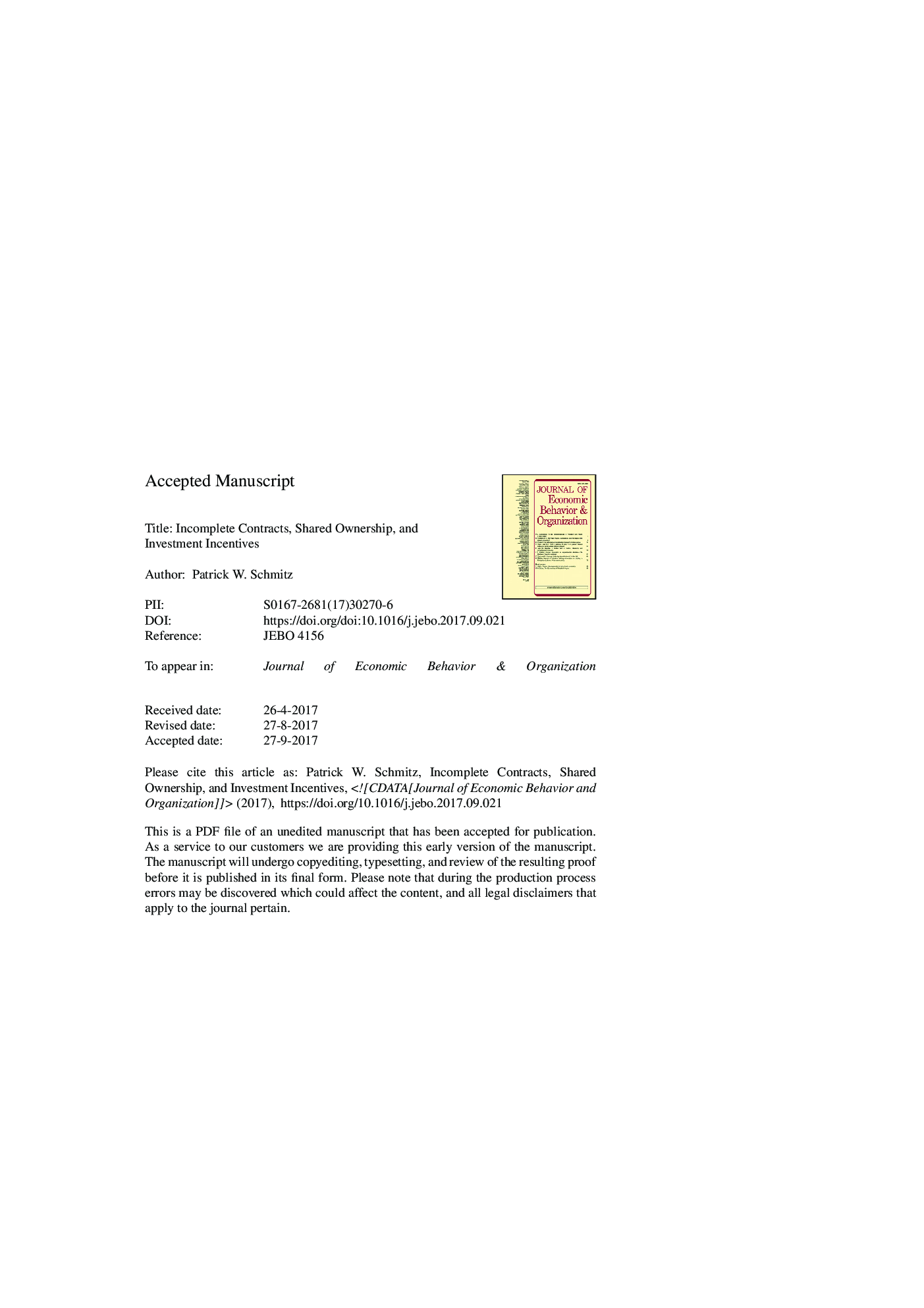| Article ID | Journal | Published Year | Pages | File Type |
|---|---|---|---|---|
| 7242722 | Journal of Economic Behavior & Organization | 2017 | 33 Pages |
Abstract
Consider a partnership consisting of two symmetrically informed parties who may each own a share of an asset. It is ex post efficient that tomorrow the party with the larger valuation gets the asset. Yet, today the parties can make investments to enhance the asset's productivity. Contracts are incomplete, so today only the ownership structure can be specified, which may be renegotiated tomorrow. It turns out that shared ownership is often optimal. If the investments are embodied in the physical asset, it may be optimal that party B has a larger ownership share even when party A has a larger valuation and a better investment technology. When shared ownership is taken into account, joint ownership in the sense of bilateral veto power cannot be optimal, regardless of whether the investments are in human capital or in physical capital.
Keywords
Related Topics
Social Sciences and Humanities
Economics, Econometrics and Finance
Economics and Econometrics
Authors
Patrick W. Schmitz,
